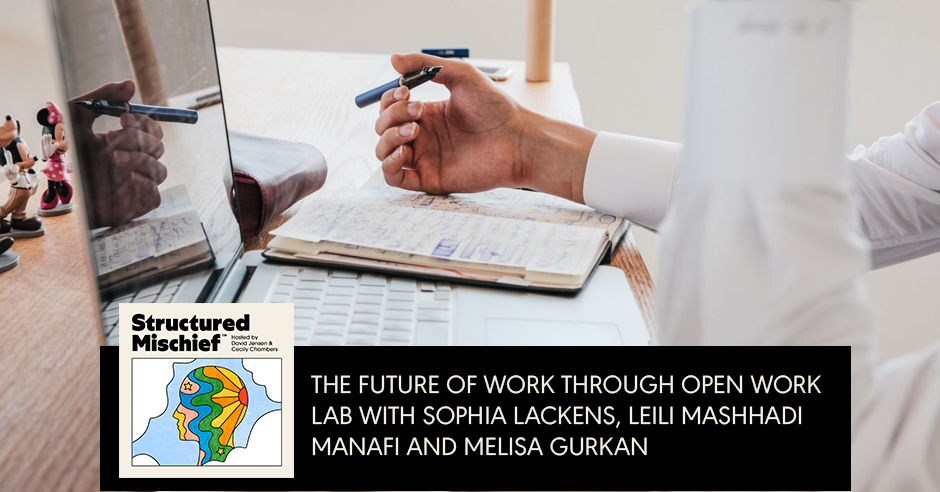
After the worldwide pandemic, the workforce experienced a new revolution where new needs and challenges arose. The future of work is now closer than it seems with people beginning to question why spending so much time in the office is necessary. Joining David Jensen and Cecily Chambers are Sophia Lackens, Melisa Gurkan and Leili Mashhadi Manafi. These three women are determined to reimagine the future of work through a Decentralized Autonomous Organization (DAO) known as Open Work Lab. Tune in to learn about Open Work Lab and the importance of adding value back to the workforce.
—
Listen to the podcast here:
The Future Of Work Through Open Work Lab With Sophia Lackens, Leili Mashhadi Manafi And Melisa Gurkan
In this episode, we are so excited to welcome three young women, Sophia, Leili and Melisa, to know about their experience, creating a Decentralized Autonomous Organization or DAO called Open Work Lab. It is a digital library, physical book and a space where communities share, collaborate and learn together to build an inclusive, equitable and human-centric future of work. Join us to learn what exactly a DAO is and how we can open our minds to positively change the future of the workspace.
—
I want to start it out by saying, I see so much value in what you’re doing. I feel, especially at this point in time to be focusing on this because of the pandemic and coming out of it, like how are we going to focus on work? How are we shifting things because there is an opening now where people are looking at things differently? Maybe you can just jump right in and talk a little bit about how you’re crafting this future of how we’re seeing work and what is Open Work Lab?
It sounds like we’re on parallel journeys here doing this. I have my own definition of DAO, but I don’t know if Melisa or Leili want to start us off.
Leili or Melisa, what’s your definition?
Open Work Lab, in very technical terms, is a digital library and a space where everyone brings their practices within a workspace that other people in the community could use. The beautiful part for me in it is that I feel like for long work has been very much, depending on context and preying on every person, there’s been a lot of competition and survival within the context of work. The more I’m living, seeing, observing and thinking, I’m realizing that the world will be much a better place if everyone is contributing with their passion and bringing things together. I see all as a step closer to this or hopefully not too far future of work.
Melisa, what do you say about that?
I agree completely. Also, the pandemic was a huge shifting point for a lot of things, but especially with work and understanding how some people can work remotely and some people can’t. OWL, it’s a compilation of these future work ideas that work not just for the 21st century businesses but everyone. They’re more inclusive. They take into account where people can go, can’t go and what people can do for work like different abilities of work as well. I know I was abroad while working for the difference or the DAO, and Leili lives abroad. We both could share experiences of how work revolves from where we’re from. It’s the collective compilation that’s more inclusive than we’ve seen before.
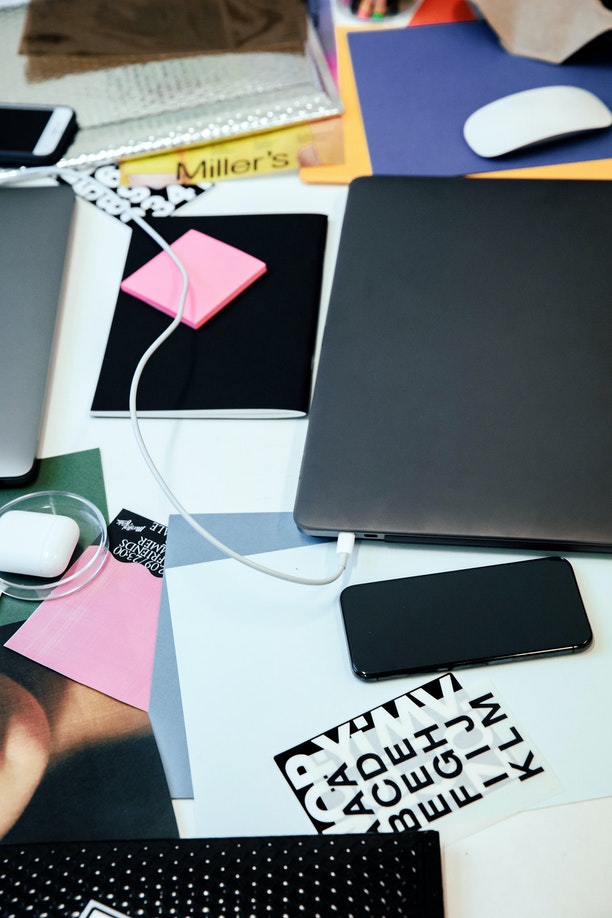
The Future Of Work: Open Word Lab is in the form of a website where there is no central entity government company that is controlling the flow of information, but rather it is controlled by the participants within that community or the members of it.
I’m just going to put some definitions out there very basic for our readers. OWL, obviously Open Work Lab and do you all want to define DAO, Distributed Autonomous Organizations and where they’ve come from in this blockchain world?
In summary, it is a system or an organization that could be in any form. In this case, Open Work Lab is in the form of a website where there is no central entity government company that is controlling the flow of information, but rather it is controlled by the participants within that community or the members of it. In this case, information being these features for practices. They are initiated and posted on the platform being our website.
As people start putting and using those practices, they would give the best way to give a thumbs up to practices they’ve implemented in their workspaces and they’ve gotten good results. They would give a thumbs up to the person who has initiated or to do a step practice, then that person would get more share of the DAO. That way, good practices would be promoted or be more introduced and more obvious within the community, so more people could get benefits from it.
You did a great job of defining that because to me, what’s exciting about this would all call it the evolution of technology and for the use of good, the Structured Mischief book is Structured Mischief impact influence in doing good in a blockchain world. At the root of that, what you described from a DAO perspective is central to that world, a decentralized world in which everybody’s voice is considered.
The more certain voices practices, or as you were describing, methods and tools evolve and are used, they move up in their ranking very naturally, all transparently. I don’t know if your website has a blockchain backend component to it or not, but part of the power of the blockchain is having an open ledger system where you have complete transparency to transactions or information. That’s what I get very excited about. It begs a lot of questions just from a governance perspective. I’m sure we’ll get into that. I’m wondering if any of the other folks want to add to that DAO description or the use of DAO?
For me, what’s most exciting with the DAO is you can eliminate it like a C-Suite and replace it with collective ownership. The power of the executive board then gets distributed down to everyone. That’s power both in ownership and financially. It’s cool to think that workers can be in control of their future instead of managers being in control of the workers’ future.
The world will be much a better place if everyone is contributing with their passion and bringing things together. Share on XThat language you use set sounds a little Marxian, but I’m okay with that because ultimately, the end goal is not something that has been a political framing or overtones that’s authoritarian. If anything, it’s about pure democracy.
Another thing is that with OWL specifically, we want people who believe their practices are going to drive forward work going in post-pandemic. Not just people who have these practices, but they’re not going to be available to everyone. When people give their ideas, essentially, they’re teaching other people how to conduct business using strategies that they’ve done. This isn’t just formal business like a consulting firm or a bank, this is a business of all kinds. It’s meant to be open to people who have an extreme amount of experience and people who are getting started off in the business world.
It was interesting that you brought up that at least two of you have lived abroad because something that I was wondering about is what was the inspiration behind this? Did you either have a negative work experience, maybe in the US and then a positive work experience somewhere else where you were able to have the perspective between the two worlds?
My partner is a European and grew up in Australia. He’s a very hard worker. He’s a lawyer who works long hours, but he also can turn off and takes five weeks of vacation a year. When I first started dating him, I was like, “Five weeks’ vacation a year? That’s crazy because in America, no one does that.” Maybe you could speak a little bit to your personal experiences that led you to this point of coming together to create OWL.
We all got involved in this project through Brandon Klein. He started his first style in Minneapolis as a coworking space and then the three of us were recruited to help build this second DAO. For all of us, this is one of our first real work experiences. This is my first real job after college. Melisa and Leili joined us as interns and they are still in college. I don’t think it’s about those past experiences but the excitement for building careers that are generative and embody the future of work as early as possible.
We’re going to talk to Brandon on another show, but maybe you talk a little bit about the work you’re doing with him or beyond this, meaning the collaboration work that he’s known for. This is not about the difference, but more about what you’ve learned working with Brandon around creating collaborative tools, collaborative methods and how you work as a straight collaboration between interested parties or a particular group. We have a concept with Structured Mischief, but we’d love to hear your thoughts on collaboration and the Arctic collaboration.

The Future Of Work: The whole idea of trying to find and build an alternative organizational structure like a DAO inherently needs that persona to shake up the norm.
The biggest difference that I saw working with Brandon, Leili and Sophia, that I haven’t experienced anywhere else is the amount of freedom that we got when directing, where we put our energy and effort and what application we use to design, what people we reach out to, what teams across the difference we even collaborate with. Doing that by ourselves and also getting some tips here and there from more experienced people at the firm let us figure out more tools on our own. Our designs started one place and ended in a totally different place because we were given free rein of essentially everything at the start.
Can you talk a little bit about specifically those tools and maybe take our readers on a journey of when you started with one tool and ended up some other place with the design?
One tool we used was Miro, which is free. It’s online. You can collaborate with people, draw sticky notes, write ideas and brainstorm. It’s like brain mapping. That worked and didn’t work in some ways. We transferred our design stuff to Figma, which not everyone on our team enjoyed, except that Leili loved it. She was great. Sophia and I were not so great at it. I know there was a lot of Adobe used, Zoom all the time, all day, every day. Leili and Sophia, you guys got anything?
You totally reminded me of working with Adobe. One of the things that I’ve learned from Brandon is staying open-minded to other tools. I’ve been using Adobe for design, assuming that’s the only option. It’s the industry standard. It’s what we use. He challenged me to look beyond that and look at tools like Figma. I’ve been looking at all the Adobe alternatives. I’ve been down a bunch of Reddit threads searching what are people doing.
There’s an alternative finder called Fetch.ai. I’ve been on their website a bunch trying to see how are people rating these different tools. I’ve done probably 3 or 4 free trials to see what’s best, doing things like that where maybe this is what I’m expected to do. I’m expected to just use Adobe, but why and do I have to? Is there something else out there that’s free, open-source or has some other value that we should be considering instead?
I agree with both Melisa and Sophia. In terms of working with Brandon and the three of us, I agree with Melisa how there’s so much trust growth, exploration, curiosity and also a lot of speed. It’s a trial and error moving forward. In terms of the software, Sophia reminded me off the scraping process over going through. We were doing research on finding people who would be interested in the DAO, both as a user or as someone who could contribute to a practice. We were looking into LinkedIn and Twitter. We use a bunch of scraping tools like Phantombuster or Clay. I remember at some point, my Clay was just not working, so I had to do this research, Google Extension. There were some website scraper thing, but I had to create an Excel sheet of it, then transfer it and then combine some fields and columns. It felt exciting at the end when getting it done.
It's cool to think that workers can be in control of their future instead of managers being in control of the workers’ future. Share on XAre there other DAOs that you guys participate in either individually or collectively?
Not to the extent that I would consider myself like a contributor of other DAOs, but we’ve been talking to people in other DAOs to see what they’re doing and how they’re going about setting it up to get a sense of what is the larger community trying to push forward.
I’m going to interject a concept that we’ve been working with through Structured Mischief that has a complete connection into DAOs. There are different personalities that create the collaborative environment. We have four archetypes or personas. We have a hustler, hacker, hipster, and heretic. I’m just wondering from your work in DAOs, do you feel like that concept applies?
If so, maybe you can elaborate. If not, what are the different personas or personality types that you’ve experienced that have come to work in the DAOs that you’re participating in? This idea that in order to build a collective of knowledge sharing, you need these different personas’ input in order to get something done. Does that resonate?
We can define the personas too, if that’s helpful. Hustler, that’s someone that’s bringing the community together, putting the message out there into the world. Hacker is someone that’s hacking the code and figuring out a way around things. Hipster is someone that’s using their cool factor to influence the collective, and then heretic would be the person that’s asking the hard questions and finding the holes in the thinking to create a better outcome in the end.
I see all of those play a role in pushing DAOs forward. Hipster and hustler are the two that stand out for me in terms of when you’re trying to promote a DAO and what it is. It’s the cool factor. There’s a lot of the rise and grind culture around DAOs. Also, like a heretic, the whole idea of trying to find and build an alternative organizational structure like a DAO inherently needs that persona to shake up the norm.
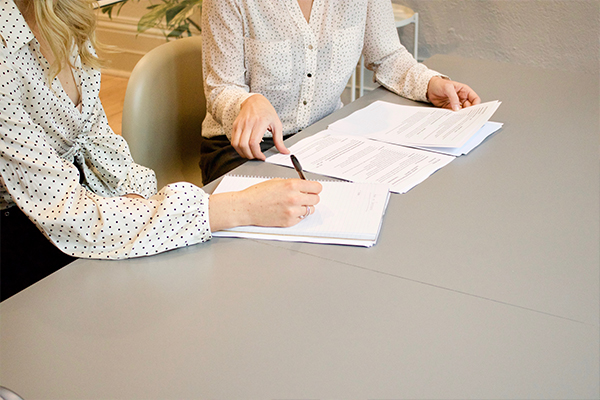
The Future Of Work: You want to get your name out there and get people thinking about what you are before you just impose all these things on them.
Leili or Melisa, any thoughts? Does that resonate?
I feel like everyone in our team had a little bit of all of them. We are combined well and complimented each other. At times, one of us was more of a hacker than a hustler and then at the other times, they would balance it out because I could see all four of us.
For our readers, what have been those kinds of breakthrough moments as a collective and what have been the challenges as the collective? How do you address when you have a challenge or a troublemaker in the collective?
I wouldn’t say that we necessarily had a troublemaker amongst our group just because for, one, we’re a small group, and two, We all don’t know what we’re going, what we’re doing or where we’re going. Along the way, a good amount of time into the project, we realized that Brandon wanted to push things forward, but we wanted to take some more time to develop our ideas, design and do some more outreach. The project just wasn’t going as quick as other people had hoped sometimes. With something like a DAO that is so ambiguous to a lot of people in the world, including all of us, before we started the job, you don’t want to push forward too much.
You want to get your name out there and get people thinking about what you are before you just impose all these things on them. That was where we wanted or where we might’ve had some trouble is pushing back on Brandon when he wanted us to move forward, get the website live and get outreach going, but we wanted to wait to develop our brand a little more and polish things up so we could have something a little nicer to present to people.
What ended up happening in that situation? Were you guys able to communicate and then find a middle ground?
If we're getting burned out so early in our careers, then what innovations are we losing from those people in the future? Share on XWe’ve taken a step back from focusing on getting a social media presence and instead, we’re building internally to have something that would be exciting for people to see.
What do you consider your biggest success in this effort?
I feel like every time I talk to somebody who doesn’t know what a DAO is and I can explain it in a way that they understand, that’s a huge success for me. I’m trying to replicate those conversations. It has been an exciting challenge for the future.
What about you, Leili?
Even coming back to college, going to campus and talking about to friends and like, “This is about what we did this summer. It’s very new and not out there as much.” We are talking about what we did. Thinking through the journey as a whole has been a big success of like all the new thoughts, new processes, skills, ideas, everything that we all brought on the table combined and moved forward with was a huge success.
Has it inspired you to be part of the larger blockchain decentralized world that’s forming? It doesn’t have to be on the finance or crypto side, but in general, in terms of education, a much more distributed decentralized model for learning and education.
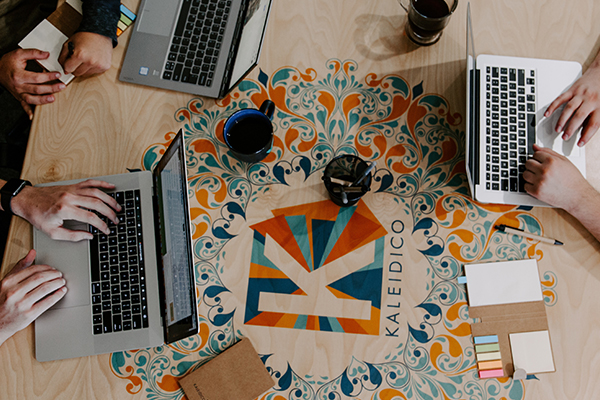
The Future Of Work: Since the industrial revolution has been extractive and extracting way too much from workers and depleting their value instead of adding value into the world, this is about changing those structures and trying to figure out a more generative way of working.
To be very honest, I’ve been doing a lot of research because of also one of my classes and have been a little hesitant about it because of the environmental costs that blockchain and mining have. Also, like some technological risks of it going wrong, the whole chain would have to be recertified.
I have to challenge you there. I would love to work with you guys to go explore that. Let’s put out there, what does it take power-wise to run a global ATM system if we put it in the context of financial services? There are studies that now show it takes more energy to run a global ATM network than it does to do blockchain mining. I believe a lot of lobbying that’s going on by certain entrenched players to give blockchain mining, Bitcoin and cryptocurrencies, in general, a bad name.
I’m not going to say that it doesn’t have an impact environmentally, but I don’t think it’s the way in which it’s getting positioned in the market. I would love to work and confirm it. If you guys are interested, I’d love to take that on with you because a lot of the research that continues to come out as blockchain mining or mining in general is moved from places like China, partially because China’s said no more. It’s moved more to the Scandinavian countries, which pretty much run on renewable energy. If anything, it’s carbon-neutral. I will love to explore that with you guys if you’re interested.
I would echo what you’re saying because one of my first work experiences was at an investment firm that focused on ethical investing. Through that, I did a lot of research. A lot of the narrative that’s being pushed against blockchain and crypto environmentally is research that’s funded by big players who stand to lose a lot.
The fossil fuel industry, very specifically, yes. I’m glad you say that. We have to turn the narrative around. The narrative is being driven by these entrenched players that want to say, “This is all destroying the environment.” I’m not saying that mining doesn’t have an impact on the environment, but it’s not, from my research. You’re confirming that, Sophia, to the level that we’re hearing in the marketplace.
I wanted to go back a little bit and hit on something else, which is, I know on your site and in some of the promotional material you gave us, you talk a lot about the timeline of the work history. It would be great if you could go through that and explain to us how you think that we got to the place that we’re at, where we’re needing to change the dynamic around work?
Think about what it means to work and be a part of the world of work and hob, and how that makes the world we are in. Share on XSince the industrial revolution has been extractive and extracting way too much from workers and depleting their value instead of adding value into the world. For me, this is about changing those structures and trying to figure out a more generative way of working because that’s ultimately more sustainable for people. If we’re getting burned out so early in our careers, then what innovations are we losing from those people in the future? How can we create sustainable careers where people can continue to innovate and challenge themselves throughout their careers?
What you’re also saying for me is just about equity, how do folks across the spectrum work and benefit from their contribution? What we have evolved specifically in late capitalism is this idea that a very few people hold a lot of power and wealth. Others are compensated, and some are not equally compensated for their contribution. Core to a world of ESG is one that starts with equity, be it financial equity, social equity or one for justice. That, to me, is also inherent in what you’re describing, Sophia.
The pandemic was this turning point that made us realize something needed to change. This point has been happening throughout time. It’s not like something is bad now. It’s just that the pandemic forces us to see it because some people literally cannot work remotely. Either their jobs don’t allow it or they just are not able to do that themselves. That’s another reason why I personally would get involved with another doll if I could because it helps level that playing field and you get out what you’ve put into it, which is what we’re told, “Work hard, play hard,” but in the real world, that’s not happening.
In thinking about how things are now, post-pandemic, it’s harder to have a distinction between work and non-work because we’re all working from our homes or the majority of us still are. I feel like those boundaries need to be drawn in order for us all to have a healthier dynamic moving forward.
In addition to the modality of work, developing the psychology and psychology of a human brain and how it’s inseparable to human context, the physical location, the emotions going on in household. Something we see all of that combines and as together, and then when we bring everything with ourselves to the workplace, it affects the way we work and interact with others. I see some of these practices that are being introduced in an Open Work Lab. Instead of extracting this energy, we also energize people and allow them to be fully present, but also mindful of how they can balance all these different parts of their context.
That comes back to wholeness, like bringing yourself as a whole individual to your work and then that increases productivity.
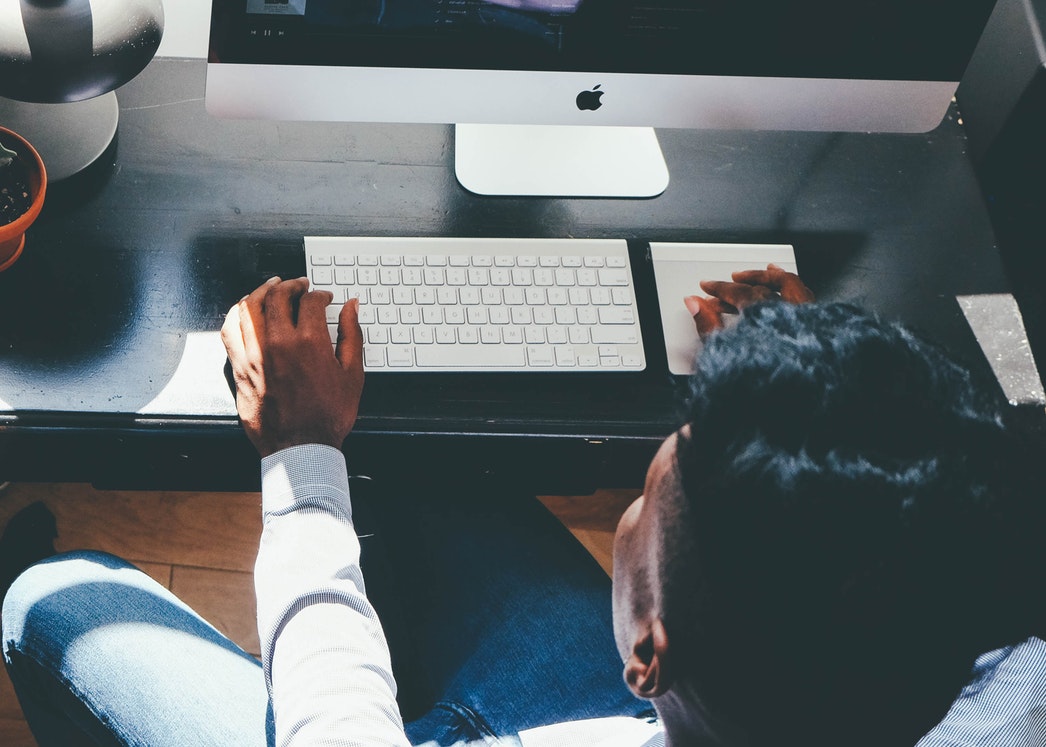
The Future Of Work: It’s about trial, error and research and figuring out if it is the right platform that you want to be a part of or not.
What are some thoughts you’d want to leave with our readers and followers about either them getting involved or forming a doubt, the benefits of more world through ESG initiatives or simply trying to have a better balance between work and life?
Also, some tips, you ladies are all young. There’s something to this youthful energy and the perspective that you have now before entering the work world where we all get closed off in our thoughts about things. Maybe you could speak to some of the ways that you keep a good balance in your life between work and play, structure and mischief.
I can start off with DJ’s question about how I would tell the readers to get involved with DAO and all of that. I wouldn’t necessarily advocate for the DAO for everyone. It’s about trial, error and research and figuring out if it is the right platform that you want to be a part of or not. I’m guessing that blockchain organizations will be iterative and I doubt this is the last iteration of what is to come with blockchain-based organizations. See what’s out there, what’s happening and get involved in something that seems interesting. It doesn’t have to be a DAO.
To build off Sophia’s point and answer DJ’s question, for me, I would challenge everyone to think about what does it mean for them to work and be a part of the world of work and job, and how does that make the world we are in. I’ve been realizing that it would look much better if, instead of competing with each other, we bring what we have on the table and build something together. For me, this space, Open Work Lab is one of the many places that you could start doing that. Help each other, build communities, serve each other and ourselves instead of wanting to go forward alone in a negative competition.
I would urge people not to say no just because they’ve heard the term Bitcoin and they’ve seen a couple of bad things about it. At first, I was a little skeptical. I didn’t know what I was getting into. I had to read a lot of articles and things and watch a lot of YouTube videos to truly understand. I still didn’t understand a lot of things, what a DAO, Bitcoin, crypto and web three-world is that we’re entering.
I would urge people to learn about it before they say no because there are a lot of preconceived notions around these topics and moving forward, working to create a DAO. I’ve noticed that instead of thinking about how I can be better than this person or that person, I think about, “I have these strengths and that person has those strengths, how can that come together and create a much more peaceful co-existing and still very highly productive environment?”
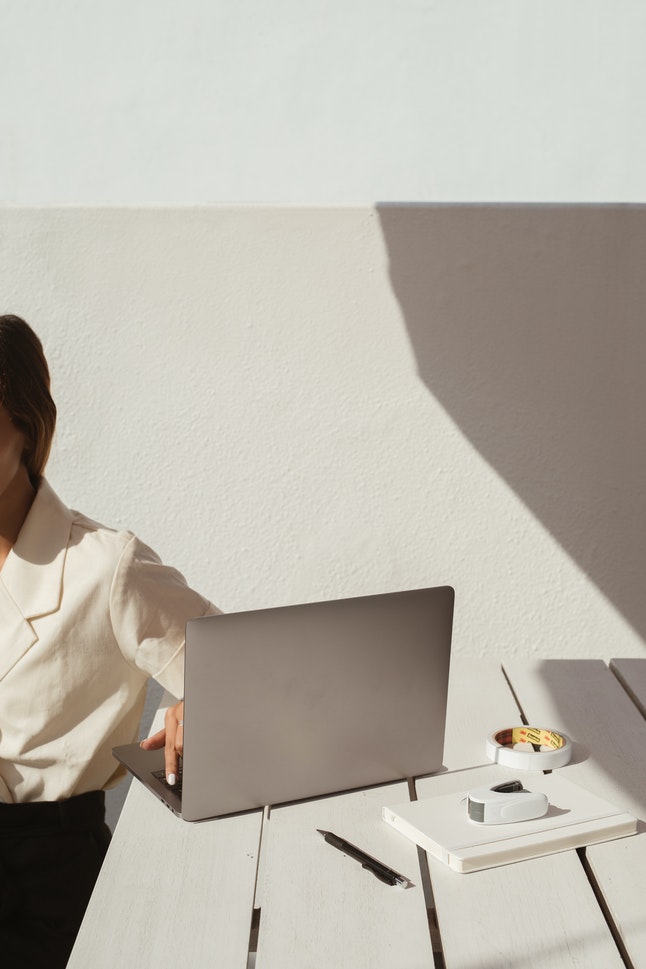
The Future Of Work: Instead of thinking about how you can be better than this person or that person, think about, “I have these strengths and that person has those strengths, how can that come together and create a much more peaceful co-existing and still very highly productive environment?”
Thank you, Melisa. I had a conversation with probably as your age, but my nephew, in university and Air Force ROTC. I was with his mates. They’re all his contemporaries and they were asking me because he knows I’m into this decentralized world that we’ve moved into, enabled by blockchain then on the financial side, things like Bitcoin and cryptocurrencies. I said exactly what you said.
I said, “Educate yourself. Before you say no, watch some YouTube videos on what a wallet is. What is blockchain enabling technology? How do you set up and buy a token, a crypto coin or a piece of Bitcoin? You can have fractional ownership in these things.” They’ve all come back to me about six months later and say, “Thank you so much.” I love that you said that and you reaffirmed what his old uncle told him. Cecily, any closing questions or comments from your end?
We can go into my favorite question, which is if you were to look back on your younger self, what one piece of advice would you give your younger self? As a second part to that question, if you were to fast forward ten years from now, what advice would your future self give your current self?
My younger self would be in high school. I don’t know that she would need to be focusing on her career yet. Education would be the most important.
It’s not necessarily only about your career. It could be anything that you feel would be helpful for your younger self to know.
Talking to my high school self, I would tell myself to explore what I’m afraid of instead of not exploring it because I’m afraid of it. I’ve seen a lot of value and a lot of areas that have been thought too scary, too complicated or too intimidating. Once I’m in, that’s it. I need to push myself to be in that space and that the rest of it will be figured out with continuous curiosity and effort. That’ll be my advice to my high school self.
Melisa, any thoughts from your end?
I stressed myself out a little too much when I was younger trying to be the best well-rounded student/person I could be. I thought that I had to be good at everything. If I wasn’t good at everything, I thought I had to at least be kind of good at everything. Now, I think about it and you don’t have to be good at everything.
I can’t code for my life, but I’ve been trying to force myself to be good at it and it’s not working. Sometimes, that’s okay. You don’t have to keep putting energy into a spot that is not taking it well. People will appreciate the other things that you are good at because we’re all good at things even if sometimes it doesn’t feel like it.
Everything that Leili and Melisa said totally resonated with me. Instead of giving my younger self advice, I would give her affirmations that she’s where she has to be and she’ll figure it out because she always has so far. Future me would also say that to current me.
I’m excited that you three women are making a difference out in the world, creating a collaborative environment that everybody can benefit from. Hats off to you. I applaud your efforts. I look forward to seeing where you’re going to take all of this.
Thanks so much for having us.
Thanks, ladies.
Important Links:
About Sophia Lackens
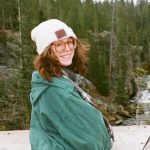
Sophia (she/her) coordinates communications and outreach at Open Work Lab, an upcoming DAO focused on the future of work. Her work aims to create more approachable conversations around DAOs, Web3, and alternative ways of working.
Originally from Minneapolis, MN, Sophia graduated summa cum laude from the University of Illinois Chicago (UIC) in 2020 with a degree in Urban Studies and a focus in Political Science. At UIC, Sophia founded @UICStrikeMemes, a popular labor rights campus meme page, and co-founded Bonfire, the only independent student media outlet on campus.
About Melisa Gurkan
 Melisa Gurkan is a third-year student at Middlebury College studying Economics and Art History. Originally from Istanbul, Turkey, Melisa has been working with the Middlebury Consulting Group and enjoys leading teams in consulting local and national companies in the U.S.
Melisa Gurkan is a third-year student at Middlebury College studying Economics and Art History. Originally from Istanbul, Turkey, Melisa has been working with the Middlebury Consulting Group and enjoys leading teams in consulting local and national companies in the U.S.
She has contributed to building a DAO revolving around the Future of Work and as she continues her studies in the U.S, Melisa would like to someday return to Istanbul and popularize the post-pandemic culture of new working.
About Leili Mashhadi Manafi
 My name is Leili. I’m originally from Tabriz, Iran, and an alumnus of United World College Dilijan (UWCD’18) in Armenia where I spent last two years of high-school, before moving to the U.S. I’m currently a senior at Middlebury College, majoring in Computer Science and minoring in Religion.
My name is Leili. I’m originally from Tabriz, Iran, and an alumnus of United World College Dilijan (UWCD’18) in Armenia where I spent last two years of high-school, before moving to the U.S. I’m currently a senior at Middlebury College, majoring in Computer Science and minoring in Religion.
Besides class, I am involved in Middlebury College’s Student Government Association as Innovation and Technology Committee Co-Director, as well as a board member on Women in CS++ Student Organization. I enjoy reading and talking about politics and ethics of technology and philosophy of science.
I am passionate about roles of Technology in Social Good and I want to serve and help create intentional, ethical, just, and humane technology as well as to help raise awareness within decision-makers and users about influences of technology in our existence. Some of my other interests include: Philosophy, Psychology, Dance, Poetry and Music and talking about interconnectedness of worlds, perspectives, and existences.

